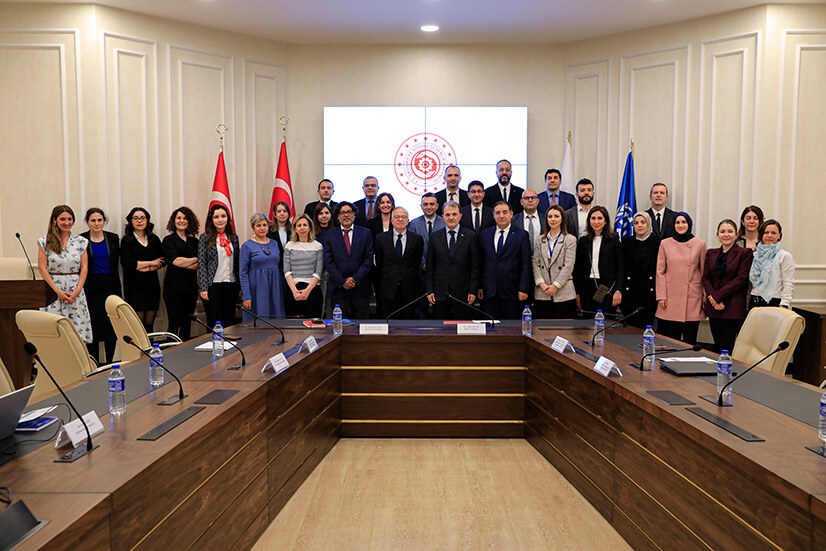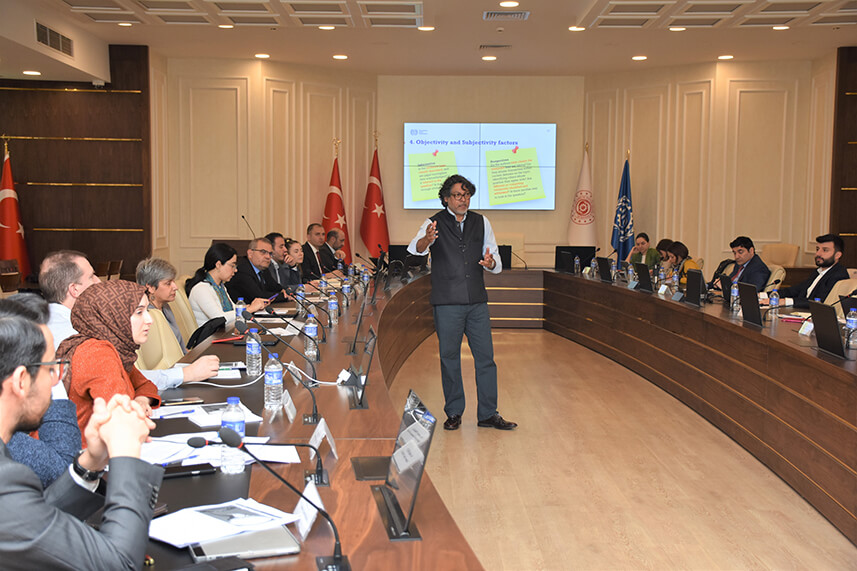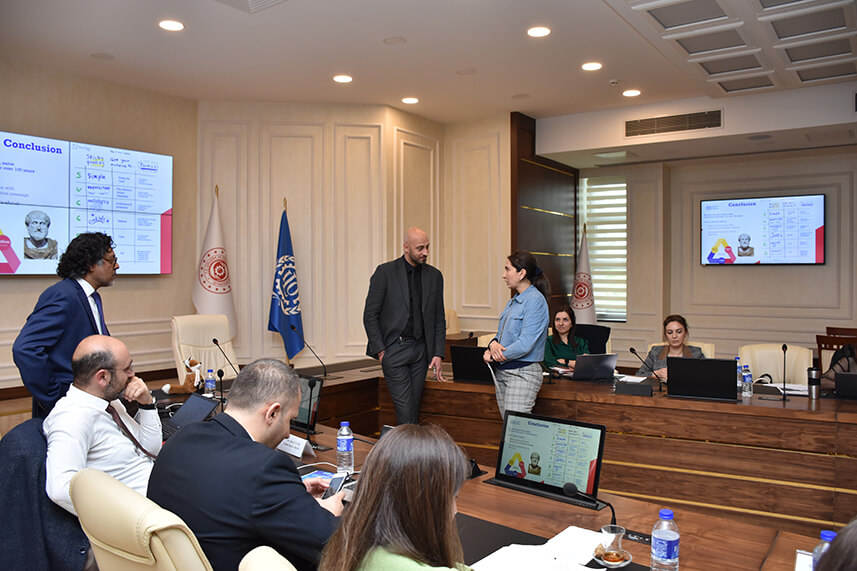Training on Evidence Based Policy Making for Decent Work Agenda
ILO to support constituents in Türkiye on improving policy making for decent work
The Ministry of Labour and Social Security of Türkiye organized a training for its constituents from government, trade unions and employers’ organizations with technical support from the ILO. The training focused on methods and tools to use evidence for formulating policies, analysis and advocacy for promoting decent work.

The training was organized at the request of the Ministry of Labour and Social Security (MoLSS) with the support of the ILO Office for Türkiye and the ILO Research Department in Geneva. The training activity was opened by the Office in Charge of the ILO Office in Türkiye Giovanni di Cola, and the Deputy Minister of Labour and Social Security Adnan Ertem and ILO Head of Education and Training of the Research Department Naren Prasad. They stressed the importance of connecting national and international policies for a human-centred recovery based on the fundamental principles and rights at work.
“Promoting decent work is a competency related work which requires development of specific skills. The ILO is committed to work with its constituents towards its realization” said Giovanni di Cola, Officer in Charge of the ILO Office for Türkiye.
“Evidence based policy making requires combining qualified data and policy and l analytical skills” said Deputy Minister of Labour and Social Security Adnan Ertem.
The training covered various research methods, analytical tools, databases, interpretation of data, evaluating evidence, synthesizing evidence and how to better communicate evidence. These methods are applied to several topics such as informality, social protection, minimum wage, migration movements, child labour, among others. Naren Prasad, the Head of Training, at the Research Department of the ILO HQs, interacted with 27 participants to reinforce their skills to better use evidence in case studies, research papers, guidelines, data and information sources and to provide analysis and recommendations to guide policymaking and policy advocacy on decent work issues.
The training included several techniques including group discussions and individual self-learning, as well as helped participants draft a policy brief on a topic selected by themselves and present it to their audience. The topics included tackling with climate change, gender equality in the labour market, youth unemployment, effective compliance of international labour standards, better reporting work accidents, child labour and fundamental principles and rights at work among others
“We learned practical tools and case studies with this training, we are now more confident to make policy changes” said participant Burcu Akça Hacıosmanoğlu, Occupational Health and Safety Expert at the MoLSS Türkiye. Another participant Selçuk Yaşar, Head of International Collaborations Unit at the MoLSS Türkiye said: “I feel lucky because after this training, I am more aware of our abilities and power, we can find means in everything to create better policies”. “I felt lucky to develop our skills with several case studies” said Şeymanur Türkoğlu, Associate Training Expert from HAK-İŞ Trade Union Confederation. “We developed our functional capacities, our way of thinking to do our job better with practical skills” said another participant Medeni Can Akın, MoLSS Directorate General of Foreign Relations Expert.
At the end of the training, participants presented their draft policy briefs. These briefs will be reviewed by ILO specialists and some of them will be eventually published. A follow-up refresher training will be convened after six months in order to evaluate how the participants are using the acquired tools and instruments in their work.

